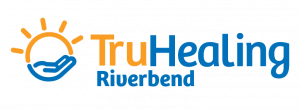Dual Diagnosis Treatment
Many of those who are diagnosed with substance use disorders also face co-occurring mental health concerns. The terms dual diagnosis and co-occurring disorders are used to describe these intertwining conditions. At TruHealing Riverbend, we believe that people struggling with both mental health and substance use disorders achieve lasting sobriety when both disorders are treated simultaneously. Our dual diagnosis treatment program uses unique programming and treatment modalities to effectively treat all co-occurring disorders.
Our staff of experienced professionals provide clients with the right resources and care to effectively treat both mental health and substance use disorders. Unfortunately, many mental health programs do not offer effective integrated treatment for these types of co-occurring disorders; however, at TruHealing Riverbend, our staff understands, and programming is built to address co-occurring disorders.
Connect with us at (855) 652-0546 or reach out online to verify your insurance and get started on the road to recovery.
What Is a Dual Diagnosis?
The underlying causes of mental health disorders like depression and anxiety can be related to substance use. Substance abuse and mental illness can feed off each other, making it especially important for an individual with a co-occurring disorder to seek a professional treatment program that understands and is equipped to treat them.
Often, it is impossible to know which came first—the mental health disorder or the addiction. A person with a mental health disorder like depression or anxiety may turn to alcohol or other drugs to reduce their symptoms. This is called self-medicating. For example, a person who has experienced trauma may use alcohol as a way to stop seeing flashbacks.
In other cases, the addiction brings with it the symptoms of mental health disorders. This is common in people who are predisposed to mental health disorders due to genetics or chemical imbalances. In either case, dual diagnosis can seem alarming and difficult to manage. Yet, even with co-occurring disorders, treatment can be very effective.
What Are the Signs of Co-Occurring Disorders?
It’s not always easy to know when a co-occurring disorder arises. It is even possible for therapists to overlook the presence of both conditions because of how intertwined they can be.
Some of the most common symptoms of co-occurring disorders include:
- Needing a drug to function
- Withdrawal from family, friends, and activities once enjoyed
- Being unable to control use, or using more than intended
- Using alcohol or drugs to deal with emotion or stress
- Sudden changes in behavior, especially restless behavior
Another key concern is withdrawal. Addiction and dependence on drugs bring on intense pain, anxiety, and illness when a person stops using them. The cravings are so intense that they make it nearly impossible for a person to stop using the drugs independently.
Some people have extreme personality changes or may experience hallucinations. A break from understanding reality is also possible. This may indicate a crisis. A co-occurring disorder, in this case, becomes a condition that needs treatment quickly.
What to Expect in Our Dual Diagnosis Treatment Program
Treating one disorder without addressing the other is not effective. The first step is to have a full assessment to determine what treatment is best for individuals with co-occurring disorders. This includes determining what type of mental health disorder is present. These might include depression, anxiety, post-traumatic stress disorder, and bipolar disorder.
Those with co-occurring disorders work through a range of treatment therapies. These may include medications to balance the mental health disorders, especially when chemical imbalances are the cause. Medications can also help to ease withdrawal symptoms from addiction. Over time, a dual diagnosis treatment program helps participants learn about their conditions, spot their symptoms, and cope with triggers.
Therapies such as the following can help with this process:
- Cognitive-behavioral therapy
- Individual therapy
- Group therapy
- Dialectical behavior therapy
- Trauma therapy
Call TruHealing Riverbend for Help with Co-Occurring Disorders
Our dual diagnosis treatment program in Jeffersonville, IN can offer life-changing help. Learn more about our treatment programs by connecting with our team at (855) 652-0546 today.







